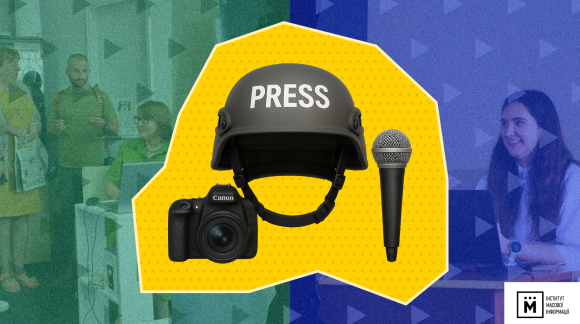One of Ukraine’s key problems remains the inability of the authorities to guarantee the physical safety of journalists, media workers, bloggers, sensitive people, activists and human rights defenders. This conclusion was made in a new thematic report of the Office of the UN High Commissioner for Human Rights “Civil Space and Fundamental Freedoms in Ukraine”, according to ZMINA .
The report covers the reporting period from November 1, 2019 to October 31, 2021, focusing on freedom of thought and expression, peaceful assembly and association, and human rights defence throughout Ukraine.
In all, in the government-controlled area, UNHCR has documented 36 cases of attacks, threats, intimidation and hate speech against journalists working on sensitive political issues and restrictions on COVID-19, as well as human rights defenders, in particular, those who defend women’s rights and is engaged gender equality, prevention of corruption, minority rights and the environment.
“The failure of authorities to ensure physical security of journalists, media workers, bloggers, opinion leaders and individuals who express opinions on sensitive topics remained a key area of concern. This included failure of authorities on site to immediately stop violent actions and ineffective investigations of threats and attacks”, the report reads.
For the most part, violators have not been prosecuted, which creates a sense of impunity and leads to new attacks, the report said. “Lack of accountability for attacks due to ineffective investigations and protracted legal proceedings further contributed to impunity and heightened risks for reporting”, the report reads.
The beginning of the reporting period was characterized by a decrease in political tensions after the presidential and parliamentary elections in 2019.
In 2020, condition of implementation freedom of thought and expression, peaceful assemblies and associations deteriorated on the eve of local elections and due to the emergence of new problems caused by the introduction of anti-pandemic measures.
“Government sanctions affecting the operation of television channels and online media outlets, and the authorities’ failure to protect journalists and other individuals from attacks or to hold the perpetrators accountable limited public access to information and impacted the free expression of opinions,” the report said.
During the reporting period, 29 incidents were reported against journalists, media workers, bloggers and those who expressed criticism of the authorities, government policy or the dominant political agenda. In 22 of them, criminals resorted to violence, in others they had recourse to threats, including online, incitement to violence, online discrediting campaigns and intentional damage to property.
The majority of the 15 attacks recorded by OHCHR in 2020 targeted investigative journalists and media workers covering policy issues such as allegations of corruption and restrictions on COVID-19.
This year, 7 of the 14 documented attacks targeted those who expressed opinions on political matters or criticized mainstream narratives.
The report noted that freedom of thought and expression in 2021 was also affected by sanctions imposed by the National Security and Defense Council and approved by President Volodymyr Zelensky against several companies and individuals that led to shut down of three television channels and blocked access to online media.
“Freedom of opinion and expression was also affected by sanctions imposed by the National Security and Defence Council and endorsed by the President against several companies and individuals in 2021, which effectively closed down three television channels12 and blocked access to online media outlets13 perceived by many as opposition or pro-Russian media sources. While the protection of national security and public order is a legitimate aim which may justify restrictions to freedom of expression, international human rights standards require that the restrictions be necessary, proportionate, and imposed by an independent body. However, the decisions on sanctions were imposed by an executive body chaired by the President, and the text of the decrees did not contain any reasoning behind the imposition of the sanctions, including the specific security concerns, or an explanation how specific sanctions would address these concerns and less intrusive sanctions would not be effective. Therefore, the decisions failed to demonstrate compliance with international standards on necessity and proportionality of restrictions of freedom of expression. 14 Furthermore, OHCHR is concerned that the lack of explicit justification for the sanctions may contribute to self-censorship by media to avoid reporting on sensitive topics that may be assessed to relate to issues of national security. The sanctions have also led to the stigmatization of media professionals who previously or continued to work at the affected media outlets, thus undermining critical journalism and creating division among media professionals. One popular video blogger openly called on Ukrainian media not to employ individuals who worked in the sanctioned media, and several groups that promote violence organized rallies calling on authorities to “close” two more television channels, “Inter” and “Nash”, which are perceived by many as pro-Russia”, the UNHCR reads.
The report cited examples of a popular video blogger openly urging Ukrainian media outlets not to hire people who worked for such media outlets, and several hate groups organizing rallies calling on the government to close two other TV channels that many see as pro-Russian: Inter and Nash.
In addition, the report notes that human rights defenders in the government-controlled area mostly worked in conditions that allowed them to exercise their fundamental freedoms and participate in public affairs and public life.
However, some groups faced greater challenges in their work. During the reporting period, OHCHR recorded 14 incidents, including attacks, threats and intimidation involving 18 human rights defenders, ten women and eight men. These include women human rights defenders, women’s rights defenders, LGBT activists, human rights defenders and human rights defenders working on anti-corruption and environmental issues, especially in the regions.
Only in one of these incidents were the perpetrators identified, and they are now being prosecuted. Of the 14 documented incidents, 11 targeted human rights defenders. Also, of all the documented incidents, eight targeted ten LGBT activists.
OHCHR also documented four acts of violence committed by unknown individuals against environmental human rights defenders, one woman and three men, and their property.
At the same time, OHCHR welcomed the actions of the Ukrainian government to increase the safety of activists and journalists, as well as remained “concerned about overall lack of accountability for perpetrators who resort to violence and threats in order to target human rights defenders, media workers, and individuals who express opinions online or attempt to participate in policymaking. Notably, in a number of documented cases perpetrators did not hide their affiliation with groups that promote violence, which nevertheless did not lead investigators to identify them. Failure of law enforcement agencies to immediately stop violence and appropriately initiate investigations into cases of violence, in some cases, encouraged perpetrators to carry out new attacks and threats targeting the same victims”..


